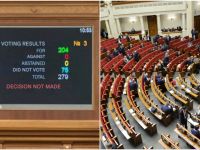Iran said Tuesday it had so far been able to sell as much oil as it needs despite U.S. pressure, but urged European countries opposed to U.S. sanctions to do more to shield Iran, as Russia and Turkey also voiced their objections. The U.S. Monday restored sanctions targeting Iran’s oil, banking and transport sectors and threatened more action to stop what Washington called its “outlaw” policies steps that Tehran called economic warfare and vowed to defy.
U.S. President Donald Trump is targeting Iran’s main source of revenue as well as its financial sector, essentially making 50 Iranian banks and their subsidiaries off-limits to foreign banks, on pain of losing access to the U.S. financial system.
“The Americans constantly said they would reduce the sale of Iran’s oil to zero but I have to say that, so far, we have been able to sell our required amounts of oil,” Tasnim news agency quoted Iranian Vice President Eshaq Jahangiri as saying.
“The Americans, with the help of propaganda, don’t see the realities.”
Read More
Iran Positive No One Can Replace Its Oil Output, Despite Saudi and US Claims
US Sanctions on Iran Go Beyond Oil
Scattered among the list of sanctions which targets more than 700 Iranian and Iranian-linked individuals, entities, aircraft and vessels are surprising entries, like the crude oil tanker Sanchi. That vessel collided with a bulk freighter and caught fire off China’s east coast in January, killing all 32 sailors aboard.
Another entry was Iran’s Tat Bank, which closed in 2012. Zarif took to Twitter to mock some of the targets of the sanctions, describing it as a “desperate” psychological ploy.
Industry estimates suggest Iran’s oil exports have in fact fallen by 40-60 percent since Trump said in May that he would reimpose sanctions, but 180-day exemptions for Iran’s biggest oil clients could mean they rise again after November.
The U.S. State Department said Tuesday that Secretary of State Mike Pompeo has granted an exception to certain U.S. sanctions that will allow the India-led development of a port in Iran as part of a new transportation corridor designed to boost Afghanistan’s economy, including the construction of a railway line from Iran’s Chabahar port to Afghanistan.
President Recep Tayyip Erdogan said Tuesday that Turkey, one of those countries, would not abide by the sanctions, which he said were “aimed at unbalancing the world.”
Jahangiri said he had spoken to a handful of managers from companies on the U.S. sanctions list, and some had already formulated plans on how to deal with the measures.
However, Iran’s oil minister wrote to OPEC’s secretary general calling for two committees that monitor an output deal with non-OPEC countries to be scrapped, accusing them of siding with the United States.
The head of Iran’s central bank, Abdolnasser Hemmati, said Iranian banks should use their previous experience dealing with sanctions to support the foreign trade process and financial transfers, according to the state news agency, IRNA.
The European Union, France, Germany, Britain and Russia, participants with the United States in the 2015 deal that lifted sanctions on Iran in exchange for curbs on its nuclear program, have all objected to the reimposition of sanctions.
Russian Foreign Minister Sergei Lavrov said in Madrid that Washington had used “unacceptable methods” to force the SWIFT global financial network to cut off Iranian banks, and there would be still ways to cooperate economically with Iran.
The EU is seeking to launch a “special purpose vehicle” to sidestep the U.S. financial system by using an EU intermediary to handle trade with Iran. Iranian Deputy Foreign Minister Mohammad Kazem Sajjadpour said in a speech at the Chatham House think tank in London that the SPV was “an interesting procedure, but what is lacking is speed and efficiency.”
He said European small and medium-sized businesses were still active in Iran “without making any noise,” and that European governments were trying to help them to keep operating.








